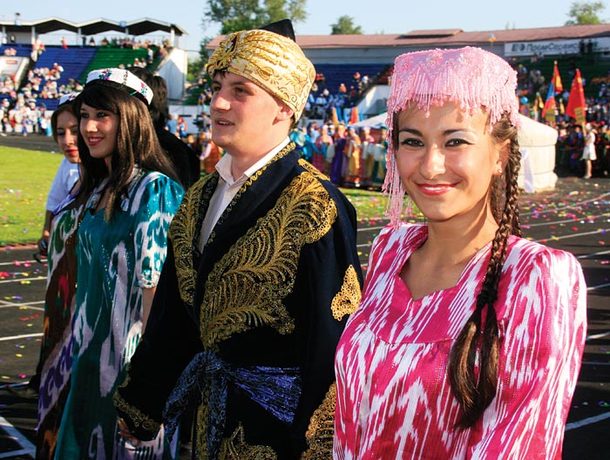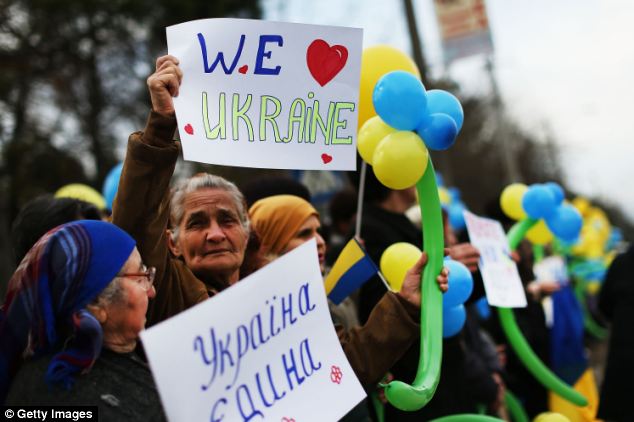by Derek Davison
Let’s talk about the difference between a “Tatar” and “tartar.” Yes, I’m talking to you, National Geographic:
Russian forces are also conveniently located in Crimea, where a largely Russian populace (59 percent; Crimea was a part of Russia until 1954)—has so far welcomed the Russian forces. Twelve percent of Crimea’s population, however, is made up Crimean Tartars, who once ruled the peninsula.
I’m also talking to you, Journal of Turkish Weekly (the piece is even called “Crimean Tatars: May 25 referendum unacceptable”!):
Crimean Tartars, who make up 13 percent of the Crimea population, are also against a decision voted on by the Parliament on Thursday, to hold a referendum on May 25 to decide the future of Crimea’s status.
Eli Lake, you’re not off the hook either:
Zissels said he was more worried for the Muslim majority Tartar community in Crimea than he was for the 17,000 Jews who are estimated to live there.
Also, Michael Collins Dunn at the Middle East Institute (!), you too:
Most of the reporting of the crisis in the Crimea has focused on ethnic Russians battling ethnic Ukrainians, but there is another ethnicity that ruled Crimea before either country: The Crimean Tartars.
See, the Tatars are the people who live in Crimea (and elsewhere; the largest subset is actually the Volga Tatars, who live in the Ural Mountains). When the Mongols swept across Asia and into Europe in the 13th century, several of the tribes in their confederation had the name Tatar, and when the Europeans heard the word “Tatar,” to their ears it sounded an awful lot like “Tartar.” The Latin word for Hell is Tartarus, and those Mongol armies might have seemed like they were sent from Hell to overrun Christian Europe, so the corrupted name “Tartar” stuck. Nowadays we know that the people call themselves “Tatars,” but some of us keep calling them “Tartars” anyway.
Let’s run through some pictures that might help get my point across. These are Crimean Tatars:

This, on the other hand, is tartar, right before the dentist scrapes it off:

Here’s steak tartare:

Culinary lore says that this dish was named after the Tatars, or “Tartars.” Europeans observed that Mongol horsemen would slip thin cuts of meat under their saddles and assumed that the rider would then eat the meat after it had been tenderized by a hard day of riding. Turns out the slices of meat were put under the saddle to soothe sores on the horse’s back and were thrown away, not eaten. Really, if you think about it, who’s going to eat a slice of meat that’s been stuck under a horse’s saddle all day?
Actually, steak à la tartare gets its name not from the Tatars, but from the sauce that usually accompanies it: tartar sauce, seen more often nowadays with fried fish and chips than with raw meat:

Tartar sauce may be named after the Tatars, but as far as I can tell it’s not clear how or why that would be.
These are taters, and now we’re completely off topic, although they are indispensable for making fish and chips with tartar sauce:

I’m obviously making light of a silly linguistic error, but the situation in which the Crimean Tatars find themselves right now is anything but silly. In 1944 Josef Stalin ordered the mass deportation of all Crimean Tatars on the charge, later shown to be false, that large numbers of Tatars had collaborated with Nazi forces when the Nazis occupied Crimea from 1941-44. Between the conditions of the deportation itself and the poor conditions that awaited the Tatar exiles in their new “homes” in Central Asia, it’s believed that 109,956 Crimean Tatars, or 46.2% of the 238,500 deportees, died within 18 months. Perhaps it’s understandable, then, why the prospect of a Russian annexation of Crimea does not make the peninsula’s Tatars, who were only allowed to return to their ancestral homeland in the 1980s, particularly excited.
So please, let’s at least resolve to refer to them as the Crimean Tatars and not by a 13th century corruption of that name that suggests they were either sent from Hell or caused by poor dental hygiene. Once we have the name right, maybe then we can consider what may happen if their community is absorbed into Russia against their will.






The last time the outside world gave any thought to the Tatars for more than two seconds was in the 8th century.
all that just to get a single picture of Tatars (old women) holding up a (vaguely) anti referendum placard?? It really doesn’t matter now anyway – they called off the false flag operation didn’t anyone tell you ?